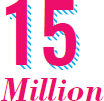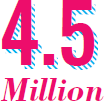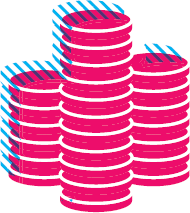
“Impact Investment: at its core is
the insistence that any money invested
must generate tangible social or
environmental impacts, as well as
financial returns.”
Part Two: Chapter 11
The New World of Impact Investing
By Holly Branson
Invest your cash and be the change
I'm lucky to work at a company that approaches every market as a champion of the consumer.
Two decades ago, joining a gym was not an option for many people because of extremely expensive fixed yearlong contracts. So what did Virgin Active do when it launched? It eliminated contracts.
Mobile phone rates and handsets were costly due to market domination from telecom owners. So what did Virgin Mobile do? It launched the world's first Mobile Virtual Network Operator—with the cost savings going directly back to our consumers.
Airline passengers in economy clamored for in-flight entertainment. So what did Virgin Atlantic do? It introduced seat-back TVs in every class on our aircraft.
The list goes on and on, I'm proud to say. It's a genuine commitment to put the customer first that's allowed Virgin to enter established markets and vigorously shake them up. Our competitors then followed suit all to the benefit of the consumer.
Virgin's approach has always been entrepreneurial. We've taken countless calculated risks in untried markets—not by throwing huge amounts of money at them, but by disrupting the market with innovative products and services and giving it a damn good go.
Everyone at Virgin knows of the need to continue to disrupt and evolve. When I started at the company in 2008, we knew we had to build on the market shake-ups of the previous decades to move into the 21st century with a radical approach to our new and existing businesses. And that “business as a force for good” had to become the most important part of Virgin's DNA going forward.
During the past few years, the phrase “impact investing” began to creep into conversations with friends and colleagues at Virgin.
So What Is It?
While traditional investing generally focuses solely on maximizing financial profitability and returns, impact investing takes a more two-dimensional view when evaluating investments. At its core is the insistence that any money invested must generate tangible social or environmental impacts, as well as financial returns. This means that consideration of both impact potential and financial viability are crucial in the investment process, and indeed both must continue to be monitored as the business grows post investment.
The Global Impact Investment Network defines impact investing as “investments into companies, organizations, and funds with the intention to generate social and environmental impact alongside a financial return and provide capital to support solutions to the world's most pressing challenges.”
While this may seem simple in theory, in practice measuring social and environmental impact is hard. As I found out more about the sector, I realized just how difficult it could be. There are more than a few complicated questions that an impact investor must consider: What's an acceptable social or environmental return? How do you quantify it relative to your business and your investment? Each investment will have its own areas of impact, which need to be measured, but ideally, each will be put into context and measured against other impact investments. Can we find a set of common measures to help gauge the quality of the impact?
These are questions that need to be addressed during the due diligence of the business, in addition to the typical questions that should be asked for any investment—including reputational risks, which cannot be ignored, even with impact investments.
And finally, the biggy: as an investor, you will also need to decide whether you accept lower financial returns to support higher impact returns. If so, what is the trade-off you are ready to accept?
Given these hurdles, impact investing is sometimes still viewed with cynicism in boardrooms. So I was feeling slightly nervous when I went to the Virgin board to argue that we should approach many of our future businesses with a focus on investing in targeted social and environmental initiatives with measurable impacts. I sold it by appealing to what Virgin has always done.
We have always entered markets from the point of view of positive impact and the value we would bring to our consumers. This was simply a more formalized way of approaching future business investments. If our initial impact investments proved successful, there is no reason we couldn't move all of our interests to impact investments in the future. Thankfully, I wasn't met with blank stares or shaking heads, but rather with real interest and a sensible desire to find out more. A steering group was immediately formed to consider how impact investing might be adopted by Virgin Management.
“I've been a long-term proponent of the view that any of society's problems that can be solved with market-based solutions must be solved that way.”
—Bill Gates, in a statement announcing his investment in Capria Accelerator, an impact investing fund.
I was inspired by the board's enthusiasm, by my dad, and by the team that researched impact investing—a sector in which, it appeared, smart people had been increasingly putting their money and, more important, making those investments deliver the intended financial and social-environmental impact in a sustainable way.
The team identified that we already had businesses that, in hindsight, could have been marked as impact investments. For instance, Virgin Pulse, our U.S.-based health and wellness company designs and develops technology to promote good lifestyle habits for employees. There is also Virgin StartUp, a not-for-profit company for entrepreneurs that provides government-backed loans and one-to-one business advice to those launching or growing businesses in England or Scotland. So these companies already met the criteria of generating social and financial returns, but we hadn't established at the outset that they would be delivering on both fronts and that we would measure the impact they were driving. Hindsight is a wonderful thing.
In a World Economic Forum study, 5,000 millennials surveyed in 18 different countries indicated that the overall top priority for any business should be “to improve society.”1
In other words, we were already running businesses that met much of the criteria; we'd just never considered it that way.
Given our history, we knew that Virgin was well-positioned to explore this growing sector further. Now we're working to ensure new investments align with the goals and objectives around impact investing, but also that our existing companies incorporate social and environmental goals through our Purpose work. That way we learn from each other and bring everyone into the conversation.
We are truly just getting started. We have decided to focus on investing in businesses that carry impact and financial opportunities in areas we believe address the most pressing social and environmental issues. Organizations that could really benefit from the expertise and public profile that a Virgin investment brings to the table. We've dedicated funds and a team to finding investment opportunities, starting in the UK, to help budding entrepreneurs create jobs and develop new businesses with a social conscience. We hope to source these opportunities through Virgin StartUp but also through entrepreneurs and investors we meet elsewhere. We're particularly thrilled to be working with young entrepreneurs as they develop new companies. After all, they're the leaders of tomorrow.
As we work with young entrepreneurs, we know the rest of our investment teams will begin to look at our larger investment strategy with the same impact lens. The investment teams are already excited and have been great advocates for this initiative.
Let me introduce you to our impact investment team: Edouard Muuls, George Howard, and Bruno Igreja, who are better placed to take you through our first deal, one that was particularly close to my heart. Not only because of my medical training, but also having had my babies six and a half weeks early, I experienced firsthand these wonderful life-saving machines . . .
mOm Incubators: Virgin's First Official Impact Investment
Edouard Muuls, George Howard, and Bruno Igreja
The first challenge was to find investment opportunities that met our criteria. In short, and in true WEconomy style, our selection needed to link purpose with profit. To build a pipeline of opportunities, we started meeting entrepreneurs and like-minded investors, joined impact aggregator networks, engaged with external advisors, attended conferences, but also picked up the phone to call management teams of businesses that struck us as great impact businesses.
When we discovered mOm Incubators (mOm), it was immediately clear they were unique and had the potential to be an ideal first investment for us. We had discussed with Holly, a trained doctor, our potential to do something game-changing in the area of infant mortality, particularly given the migrant crisis across Europe. At first glance, mOm seemed to bring a solution to a dire problem along with the market and product potential to grow into a significant and profitable venture.
mOm is a collapsible, portable infant incubator—much lighter and cheaper than traditional models—that provides a regulated environment to keep babies warm every bit as effectively as the incubators in well-equipped neonatal intensive care wards.
James Roberts created mOm after watching a documentary on Syria in which he learned that the stress of war has caused infant mortality rates to soar. He saw this as an opportunity to make a difference and invented mOm in a Design Engineering course at Loughborough University, where he went on to win the Sir James Dyson Global Prize for Innovation in 2014. The genius of mOm is that it's designed to be used anywhere, from rugged, harsh environments in rural Africa to time-sensitive neonatal transport in the developed world—and everywhere in between. mOm provides high quality, durable infant care conditions to service the most challenging settings.
First steps at Virgin were to meet the team behind mOm. James and his partner Matt Khoory jumped at the chance to show off their product and to talk about seed funding. It took only a single introductory meeting, in which James demonstrated the functionality of a prototype unit, to get us jumping straight into our due diligence process.
Emotionally, we were sold. But we needed to create more rigorous parameters for it to be a true impact investment. If we didn't define our returns, it would just be a donation. We concentrated on the following key areas:
- Nature and measurability of impact, and how this might evolve
- Achievability of the go-to-market strategy, particularly across developed and developing markets
- Intentions and motivations of our co-investors, particularly the lead investor in this seed funding round
It is the final point that's worth dwelling on. “Intentions and motivations of our co-investors” is very close to the fundamental principles we use to invest under at Virgin in the broader sense. As a multifaceted family office with investments in sectors ranging from financial services to space tourism, we have always been very keen to bring in co-investors who align with our goals, but who also bring sector-specific expertise.
Infant Mortality in the Developing World: A Tragedy in Numbers
 According to a World Health Organization (WHO) analysis, an estimated 15 million babies are born prematurely each year (less than 37 completed weeks of gestation), and the number is rising. |
 The risk of a child dying before completing the first year of age was highest in the African Region with 55 deaths per 1,000 live births. That is over five times higher than in Europe, where the rate is 10 per 1,000 live births. The risk of a child dying before completing the first year of age was highest in the African Region with 55 deaths per 1,000 live births. That is over five times higher than in Europe, where the rate is 10 per 1,000 live births. |
 Premature birth complications are the leading cause of death among children under five years of age, responsible for nearly one million deaths in 2013. |
 Three-quarters of them could be saved with simple interventions, but are prevented often through lack of funds and/or equipment (access and availability of incubators, for example, or vaccinations and antibiotics). |
 In 2015, 4.5 million (75 percent of all under-five) deaths occurred within the first year of life. |
We also had to get up to speed with mOm's business and impact model. To do so, we spent time with James and Matt to go through some of our key due diligence questions, notably how they planned to bring the product to market, who they would sell to, what the pricing would be, and how they would plan to scale the business over the medium to long-term—at the end of the day, we needed to make sure they had a strong plan to scale and therefore achieve the impact that we all desired. With comprehensive responses to these questions from mOm, we then worked to review the information, including market analyses and financial models, with the goal of assessing the financial forecasts that mOm had shared and working out what our returns would be.
We focused on determining the financial viability of mOm, just as we would any other Virgin Group investment. But what set our impact investing process apart is the time we spent researching the extent of the problem that mOm was looking to solve. We wanted to truly understand the level of impact mOm could have. What we uncovered was eye-opening.
mOm had invented a lightweight and compact incubator for 5 percent of the cost of a conventional model, which was 100 percent as effective at regulating the thermal environment.
To underscore our commercial due diligence, we needed more firsthand intel on mOm and its product. We consulted an industry expert in pediatrics, an expert who had experience developing commercial medical products. We learned that a critical problem in the developing world was that existing technology, if it was even available, was not understood, maintained, or used. Simply put, the market was crying out for a simple piece of technology that would meet this growing need at an affordable price—seemingly a perfect backdrop for mOm to make a difference.
The final piece of the puzzle was to speak with our co-investors, and in particular MaSa Partners, the lead investor. Crucial for us was gaining an understanding of MaSa's intentions, particularly around mOm's potential humanitarian impact. We were encouraged by MaSa's UNICEF involvement, and certainly saw the strategic opportunity and connections they could bring to mOm at board level.
Importantly, we agreed to embed a statement on impact objectives in MaSa's Articles of Association, thus establishing a degree of “mission-lock” for the company and ensuring impact would always be front and center in its goals.
Reassured by MaSa's commitment, and alongside our other due diligence efforts, we sought formal Virgin approval to proceed, and met with Holly to get her views.
The rest is history! As a co-investor (as opposed to a lead investor) in this round, our role was to insert our purpose into the various terms of the investment, particularly what we could and could not accept. All the hard work of aligning these views fell to MaSa and its lawyers.
With one investment under our belt, we're looking for other impact investment opportunities. It's true the first is often the hardest. Even though there were scant doubts about the virtues of mOm, it was certainly difficult at times to reach full agreement among all investors on the exact terms of the deal. We've learned lessons we'll bring to our next venture. mOm is a very early stage investment, and carries with it all the risk typical of seed companies. For mOm, the journey is just starting. Like any other company, it will undoubtedly encounter hurdles along its development path. Our role, as a key shareholder and investor, is to support management as the company matures, lend a hand when needed, but above all to allow James and Matt to get on and build a great business that could lower infant mortality rates.
To hear James share more about mOm Incubators: Click for video
Impact Investing: The Future Is Now
Impact investing isn't the next big thing—it's the current big thing. Here are three groups heavily investing in creating global impact:
Bridges Ventures
Founded in 2002, Bridges Ventures is an investment fund that focuses on providing capital to businesses that tackle the world's pressing social and environmental challenges.

Bridges has pioneered and developed a proven model that invests in four key areas: Education and Skills, Health and Well-Being, Sustainable Living, and Underserved Markets.
As one of the first institutions to develop the field of impact investing, Bridges built a platform to measure and optimize the impact of each of their investments, and provide regular reporting on progress.
Omidyar Network
Established in 2004 by eBay founder Pierre Omidyar, the Omidyar Network is both a charitable foundation and an impact investor.
The Network supports a range of enterprises, from for-profit businesses to nonprofit organizations, across five key areas: Education, Emerging Tech, Financial Inclusion, Governance and Citizen Engagement, and Property Rights.
The Rise Fund
A global impact fund led by private equity firm TPG in collaboration with renowned stakeholders, including Bono, Richard Branson, and Pierre Omidyar. The $2 billion fund was announced in September 2016 and made its first investment in April 2017.2
The Rise Fund will partner with creative entrepreneurs and build successful businesses that drive meaningful, measurable, positive change in seven key sectors: education, energy, food, and agriculture, financial services, growth infrastructure, healthcare, and technology, media, and telecommunications.
